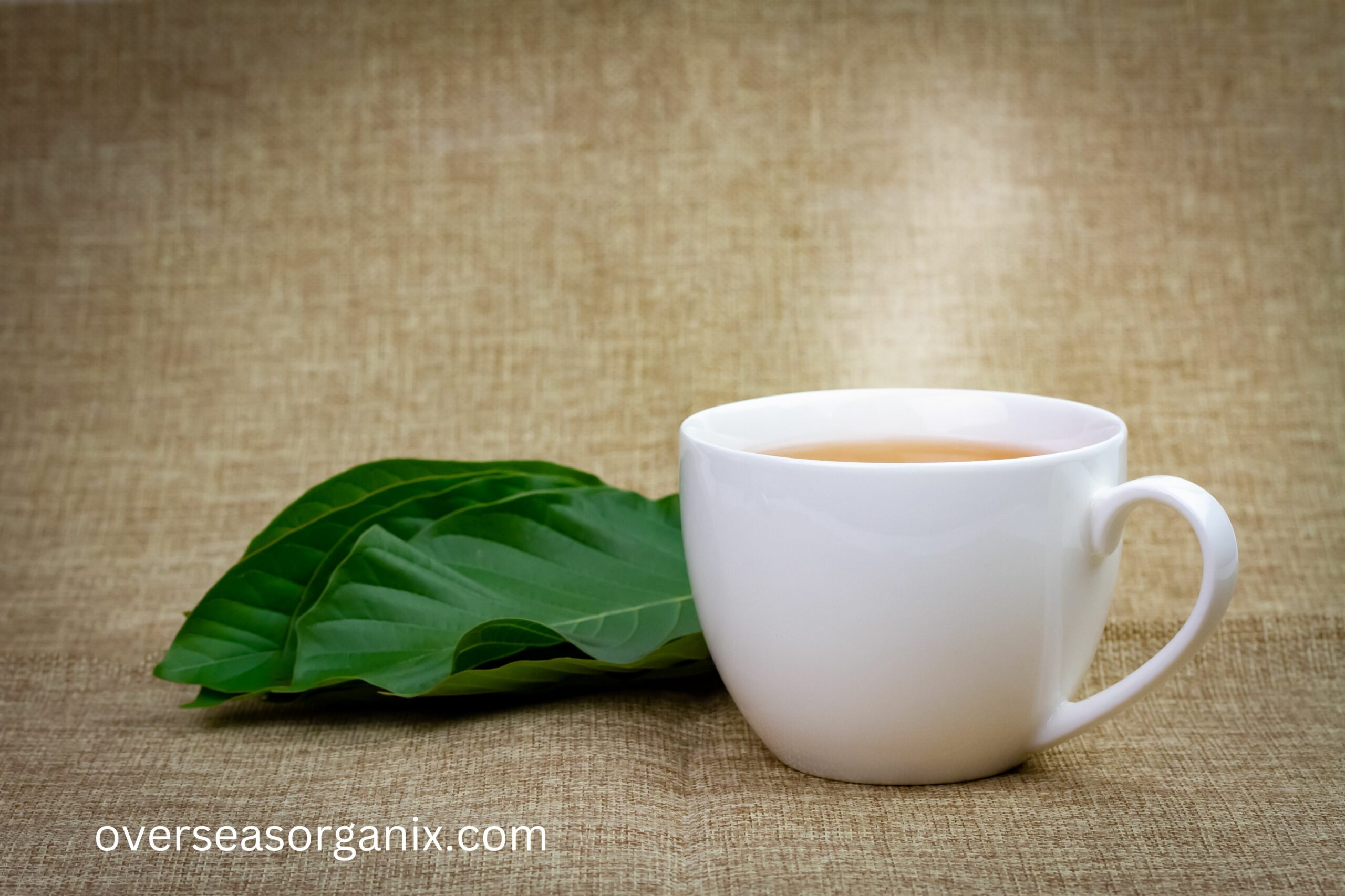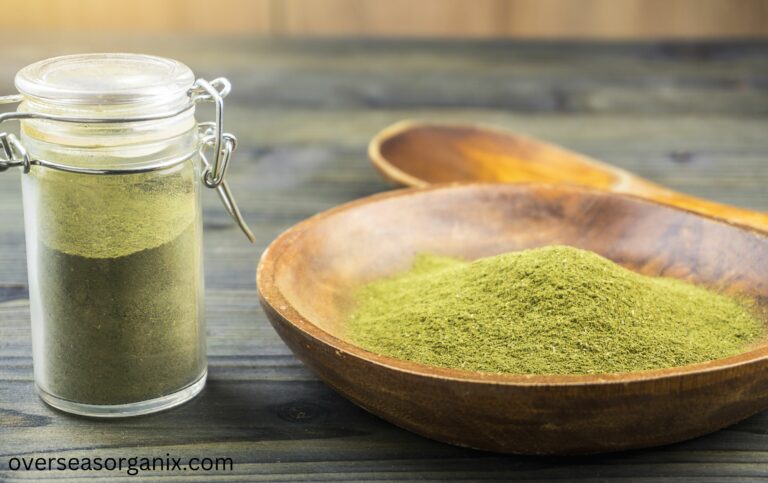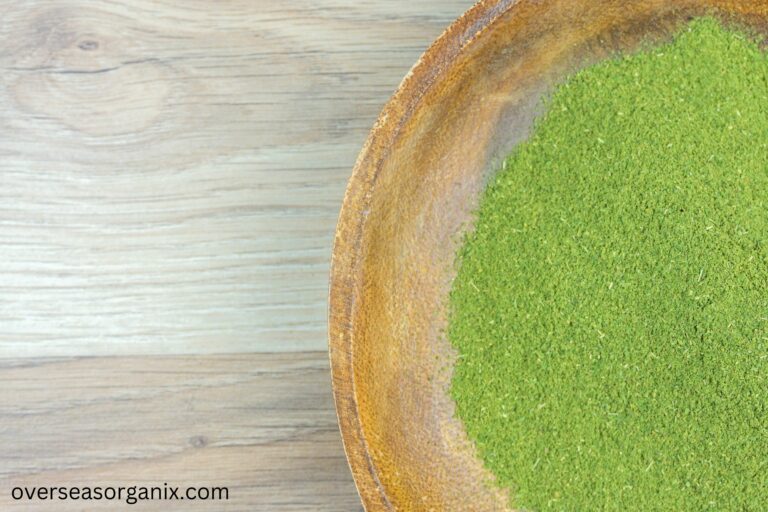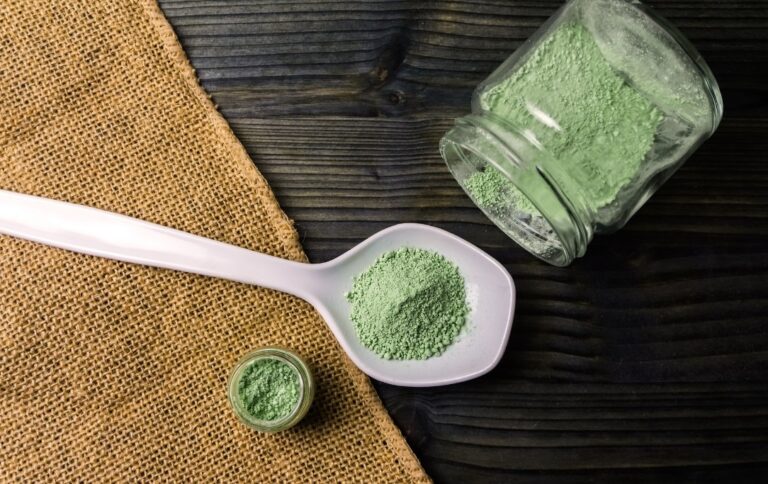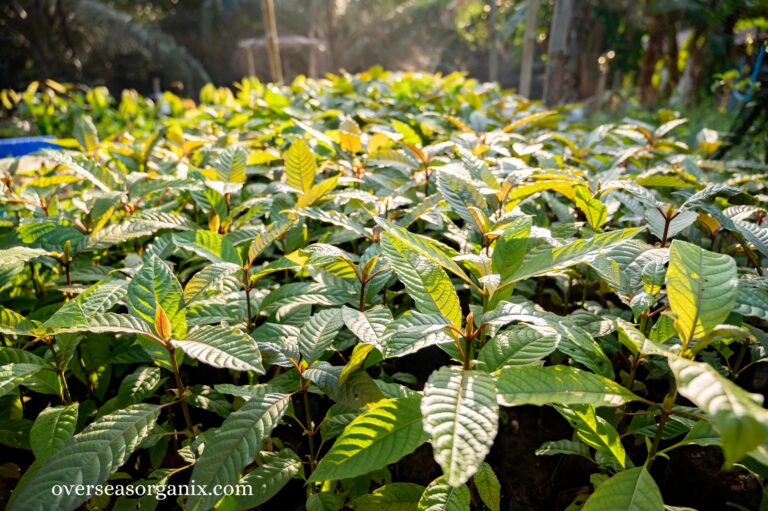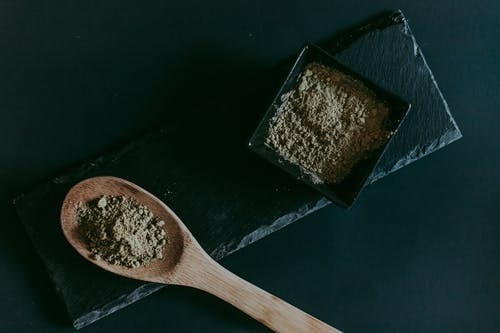No products in the cart.
Kratom Tea: Unlocking the Potent Benefits
Kratom, hailed as a natural herbal remedy with a plethora of benefits, has gained considerable popularity in recent years. Kratom tea, a traditional Southeast Asian beverage, has garnered attention for its alleged therapeutic properties. Derived from the leaves of the Mitragyna speciosa tree, native to countries like Thailand, Malaysia, and Indonesia, It has been used for centuries for its medicinal and recreational purposes.
Understanding Kratom
Kratom, scientifically known as Mitragyna speciosa, belongs to the coffee family and contains alkaloids like mitragynine and 7-hydroxymitragynine, which interact with opioid receptors in the brain, producing various effects.
Origins and Cultivation
The Mitragyna speciosa tree thrives in tropical climates and is cultivated primarily in Southeast Asia. The leaves are harvested, dried, and processed to create Kratom products, including powder, capsules, and extracts.
Preparation of Kratom Tea
Ingredients required
To brew Kratom tea, you’ll need Kratom powder or crushed leaves, water, and optionally, flavorings like honey or lemon.
Brewing process
- Boiling water: Heat water to a simmer, but do not allow it to reach a full boil.
- Adding Kratom: Measure the desired amount of Kratom powder or crushed leaves and add them to the water.
- Steeping: Allow the mixture to simmer for 15-20 minutes, stirring occasionally.
- Straining: After steeping, strain the tea to remove any plant matter.
- Enjoying: Pour the strained tea into a cup and add any desired flavorings before consuming.
Benefits of Kratom Tea
Kratom tea enthusiasts advocate for its numerous potential benefits, including:
- Pain relief: Kratom contains alkaloids that may alleviate chronic pain.
- Mood enhancement: Some users report experiencing improved mood and mental clarity.
- Energy boost: Kratom tea may provide a natural energy boost, making it popular among those seeking increased vitality.
- Anxiety reduction: Certain Kratom strains are believed to have anxiolytic properties, helping users manage anxiety symptoms.
Potential Side Effects
Despite its touted benefits, Kratom tea is not without its risks. Common side effects include:
- Nausea and vomiting: Some individuals may experience gastrointestinal discomfort after consuming Kratom tea.
- Dependency and addiction: Prolonged use of Kratom may lead to dependency and withdrawal symptoms upon cessation.
Dosage and Usage
Safe dosage guidelines
It’s crucial to start with a low dosage and gradually increase it as needed. Recommended dosages vary depending on factors like individual tolerance and desired effects.
Frequency of consumption
To mitigate the risk of tolerance and dependency, it’s advisable to use Kratom tea sparingly and not exceed recommended dosage guidelines.
Legal Status of Kratom
Regulatory concerns
Kratom’s legal status varies by region, with some countries imposing strict regulations due to safety concerns and potential abuse.
Legal status in different countries
While Kratom remains legal in many parts of the world, it is banned or restricted in several countries and jurisdictions.
Varieties of Kratom
Strain differences
Kratom is available in various strains, each with its unique properties and effects. Common strains include Red Vein, White Vein, and Green Vein Kratom.
Effects of different strains
Strain selection can significantly impact the user experience, with some strains promoting relaxation and pain relief, while others offer stimulation and energy enhancement.
Kratom Tea vs. Other Forms of Consumption
Comparing benefits and drawbacks
While Kratom tea is a popular consumption method, other forms like capsules and extracts offer convenience and dosage precision. However, tea enthusiasts appreciate the ritualistic aspect and mild flavor profile.
Research and Studies
Scientific findings on Kratom
While research on Kratom’s efficacy and safety is ongoing, preliminary studies suggest potential therapeutic applications. However, more extensive research is needed to elucidate its long-term effects and optimal usage guidelines.
Tips for Buying and Storing Kratom
Finding reputable vendors
When purchasing Kratom products, it’s essential to source them from reputable vendors who prioritize quality and safety like Overseas Organix.
Proper storage methods
To preserve the potency of Kratom, store it in a cool, dry place away from direct sunlight and moisture.
Conclusion
In conclusion, Kratom tea offers a unique blend of potential benefits and risks, making it imperative for users to exercise caution and moderation. While anecdotal evidence and preliminary research suggest promising therapeutic applications, further scientific inquiry is necessary to validate its efficacy and safety fully. Whether seeking pain relief, mood enhancement, or energy boost, individuals considering it should educate themselves on dosage guidelines, potential side effects, and legal considerations before incorporating it into their wellness regimen.
Frequently Asked Questions (FAQs)
Kratom tea is a beverage brewed from the leaves of the Mitragyna speciosa tree, renowned for its potential therapeutic effects.
The legal status of Kratom varies by region, with some countries banning or restricting its sale and consumption due to safety concerns.
Kratom tea is known for its earthy and bitter flavor profile, which some users find tolerable with added flavorings like honey or lemon.
Common side effects of Kratom tea include nausea, vomiting, and dependency with prolonged use.
Some individuals use Kratom tea as a natural remedy to alleviate symptoms of opioid withdrawal, although its efficacy and safety for this purpose are not well-established.


